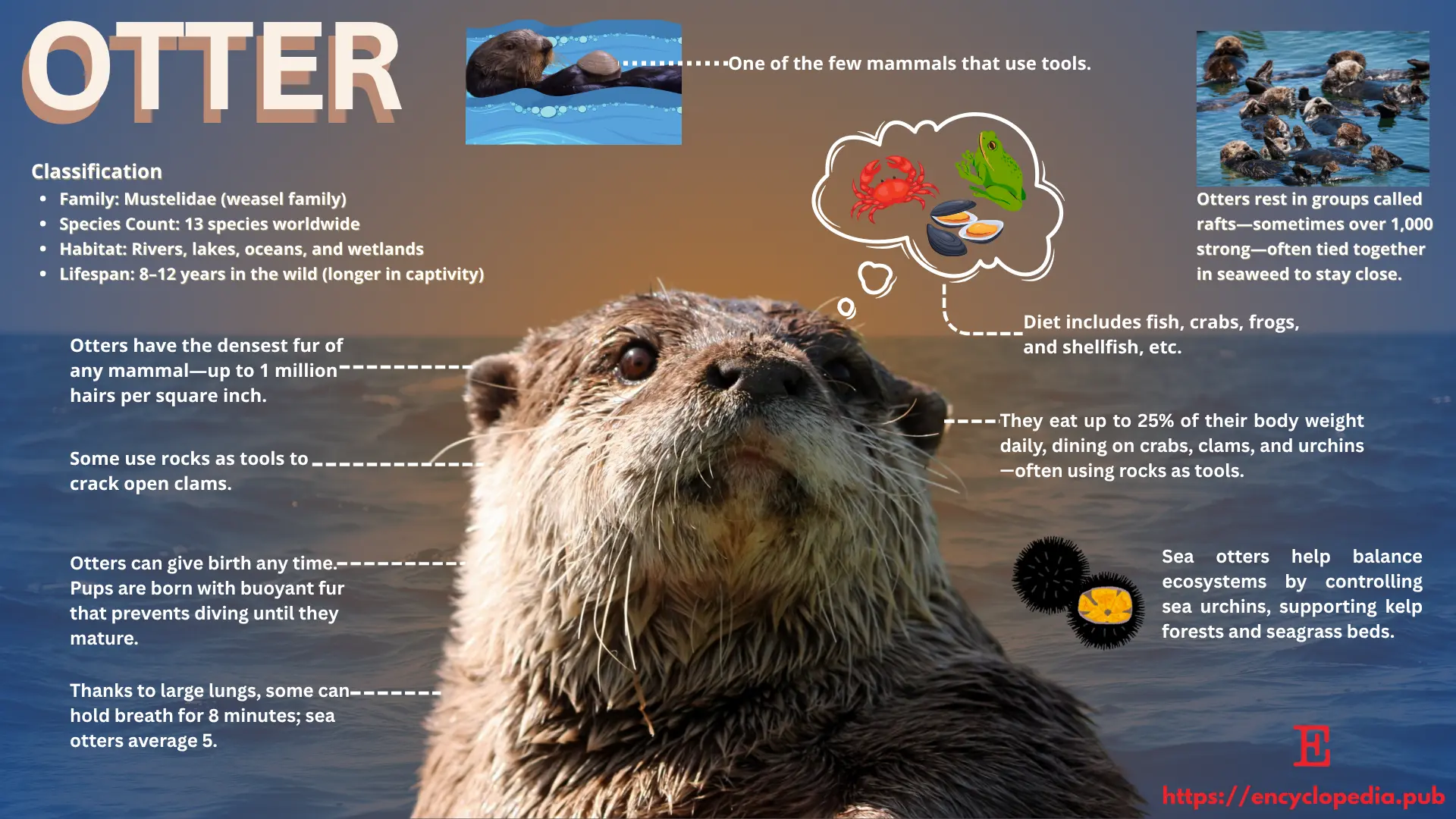Otters are some of the most charming and playful creatures in the animal kingdom. With their sleek bodies, expressive faces, and playful antics, they've captured the hearts of people worldwide. But there's more to otters than just their cuteness—they're intelligent, social, and vital to their ecosystems.
1. What Are Otters?
Otters are semi-aquatic mammals belonging to the Mustelidae family, which also includes weasels, badgers, and ferrets. There are 13 different otter species, ranging from the small-clawed otter to the giant river otter. They can be found on every continent except Australia and Antarctica, thriving in freshwater rivers, lakes, and coastal marine environments.

Source: Encyclopedia Scientific Infographics (https://encyclopedia.pub/image/3635)
2. Types of Otters
Here are a few well-known otter species:
-
Sea Otter – Found along the Pacific coast, these otters are known for floating on their backs and using rocks to crack open shellfish.
-
River Otter – Agile swimmers found in North America, often seen sliding on muddy banks for fun.
-
Giant Otter – The largest otter species, living in South America’s Amazon basin, with a highly social family structure.
-
Asian Small-Clawed Otter – The smallest otter species, known for its dexterous paws and playful nature.
3. Otter Behavior & Intelligence
Otters are incredibly smart and social animals. Here are some fun facts about their behavior:
-
Tool Use – Sea otters use rocks to break open shellfish, one of the few animals known to use tools.
-
Playful Nature – Otters love sliding, wrestling, and playing games, which helps them develop hunting skills.
-
Communication – They use a variety of sounds, from whistles to growls, to communicate with each other.
-
Holding Hands – Sea otters often hold hands while sleeping to avoid drifting apart—an adorable behavior called "rafting."
4. Habitat & Conservation Status
Otters thrive in clean, unpolluted waters, making them indicator species—their presence signals a healthy ecosystem. However, many otter species are threatened due to:
-
Habitat destruction (pollution, dam construction)
-
Hunting (for fur in the past)
-
Climate change (affecting marine food sources)
Organizations worldwide are working to protect otters through conservation programs, habitat restoration, and anti-poaching laws.
5. Why Otters Matter
Otters play a crucial role in their ecosystems:
-
Maintaining Balance – By preying on fish, crabs, and sea urchins, they prevent overpopulation that could harm underwater vegetation.
-
Boosting Ecotourism – Their playful nature attracts wildlife enthusiasts, supporting local economies.
-
Indicating Water Health – Since they need clean water to survive, their presence indicates a thriving environment.
For more information about topic, you can view the online entry entitled "Otter".
